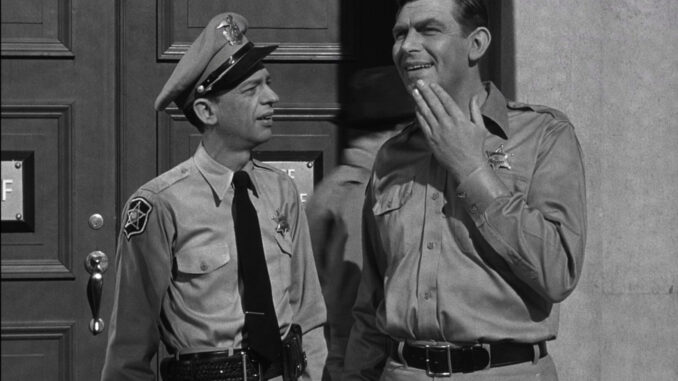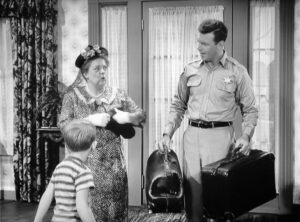
The Andy Griffith Show has long been celebrated for its portrayal of Mayberry as a utopian small town where kindness and common sense prevail. For many, it’s a soothing reminder of simpler times. But as I revisit the series, I find myself questioning whether its sanitized depiction of life comes at the expense of acknowledging deeper truths.
Mayberry’s charm lies in its simplicity. Conflicts are minor and quickly resolved, and the townsfolk’s eccentricities are endearing rather than divisive. Sheriff Andy Taylor’s calm demeanor and moral clarity serve as a guiding force, making Mayberry feel like a haven of stability. However, this idealization often ignores the complexities of real-life communities, particularly in the 1960s.

The show’s erasure of racial and social struggles is particularly glaring. While it’s unfair to expect a sitcom to tackle every societal issue, The Andy Griffith Show aired during a time of significant upheaval in America. By ignoring these realities, it presents a skewed version of history that risks perpetuating a false narrative of harmony and simplicity.
This idealization extends to its portrayal of law enforcement. Sheriff Taylor’s benevolent approach to justice contrasts sharply with the harsher realities of policing, both then and now. While his fairness is admirable, it’s worth examining how this depiction influences perceptions of law enforcement, particularly when juxtaposed with modern conversations about systemic issues in policing.
Ultimately, the world of Mayberry is a comforting fantasy, but it’s important to view it with a critical eye. Recognizing its limitations allows us to appreciate its virtues while engaging with the broader cultural context it exists within.
